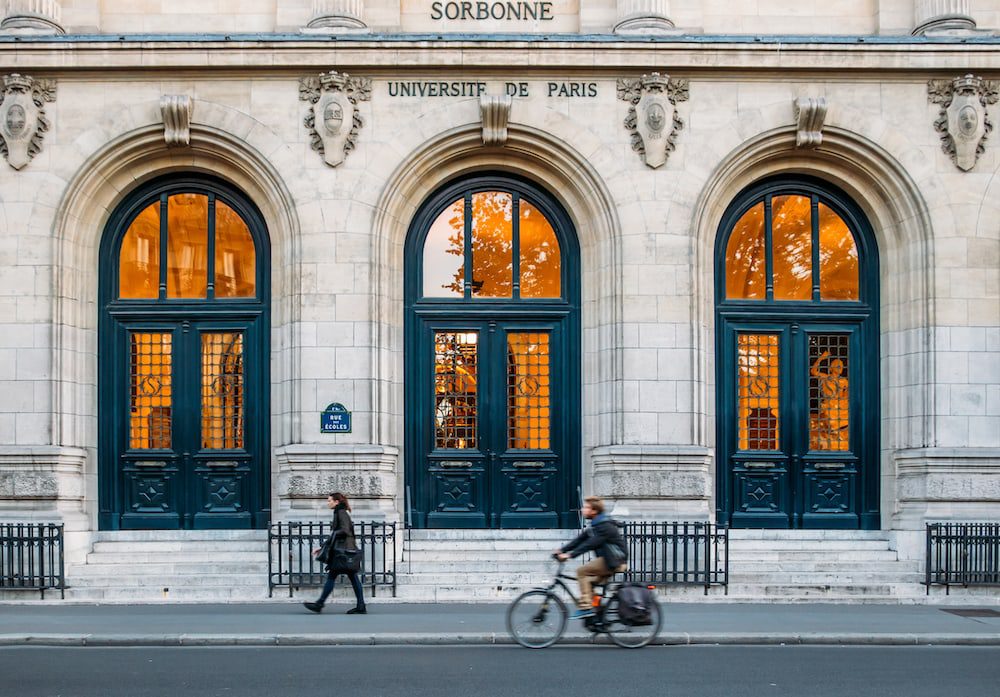
In French universities, use of the neutral pronoun ‘iel’ is on the rise. Le Monde reports that the phenomenon is most observable in the social sciences, where addressing those who identify as ‘non-binary’ or ‘transgender’ by using neutral pronouns is now no longer considered taboo. It is protocol.
While the creeping advance of gender ideology has been largely confined to Canadian, English, and American faculties, some of France’s are making inroads. Not surprisingly, the field of social studies is most affected, with various departments sending out surveys to their future students to ascertain their self-chosen gender. Some of the faculty even put the pronoun in their email signature. Meanwhile, students’ writing is influenced by this creativity with identifiers. Neologisms such as ‘iel,’ but ‘celleux’ as well, regularly crop up.
“We sense a growing interest from students in these questions,” Florence Damour, social responsibility delegate at the University of Lorraine, confirmed to Le Monde. At students’ request, the university is now committed to an ‘inclusion policy’, and it regularly broadcasts awareness videos, particularly on the subject of non-binarity (people who identify neither as male nor as female).
France is no novice to this particular battleground. It was only in late October last year that Le Petit Robert, a popular single-volume dictionary, announced the inclusion of the neutral third person pronoun “iel” for its digital edition. The announcement immediately sparked much controversy, and prompted Minister of National Education Jean-Michel Blanquer to call it an attempt to “fiddle with the language.” Subsequently, 85 MPs and dozens of representatives of Les Republicains joined ranks, and objected to this “deconstruction” of the French language “on ideological grounds” in a Le Journal du Dimanche column.
“It is not by transforming our language that the pains and sufferings of certain lives will fade,” they said, while emphasizing the risk of “a deconstruction of our language, of our history, but also of our nation.” They concluded that such modification is more likely to create “disunity” among the French than anything else.
The distinguished linguist Bernard Cerquiglini also had some choice words to say on the matter. Interviewed by BFMTV on 17 November 2021, he said that the decision came from a “militant” place. He pointed out that acceptance of this term would reach its logical conclusion in a radical change of the French language. Advocates of the neologism argue that a dictionary does not have the authority to decree what words are French, but that it merely lists those being used. Cerquiglini however disagrees that “iel” meets that criterion, finding the term not common enough for inclusion. “One only encounters it in militant texts,” the linguist said. For the pronoun to appear in a dictionary, its use must be attested to “orally, in writing, across several generations,” and be part of common parlance.
Bernard Cerquiglini, lexicographe chez Larousse: "On ne rencontre l'attestation du pronom 'iel' que dans les textes militants" pic.twitter.com/WUp1mvXSeY
— BFMTV (@BFMTV) November 17, 2021
He also questioned whether it is “a good solution” to define people who do not identify with any gender. “Pronouns do not exist on their own, we make sentences with them,” he explained. He assessed that masculine or feminine qualifiers will come next for “people who feel neutral” and that “it will therefore be necessary to invent a neutral form for the adjective.” This would lead to a “neutralization of the language,” he noted. He concluded by voicing respect for everyone’s feelings and supporting the freedom of self-expression, but with one caveat—that a 2000-year-old language system should not be sacrificed in this pursuit.
Unsurprisingly, the topic of so-called ‘inclusive writing’ has permeated France’s run-up to the presidential elections. In late January, Le Figaro drew up a list of the stances of all candidates, declared and presumed.
Incumbent president Emmanuel Macron (En Marche!), who has not yet declared his decision to run, has already twice refused to put the pronoun change into law. In November 2017, texts published in the Official Journal of the French Republic were required to “not make use of so-called inclusive writing.” This was followed in May of 2021 by its ban in schools.
In a tweet last October, Éric Zemmour vouched to defend a language which in a 2018 column he warned was “falling apart.”
Nous voulons conserver notre langue, la plus belle du monde, la plus claire, nous voulons la protéger de l’influence américaine, maghrébine et de l’écriture inclusive.#Nîmes #CroiséeDesChemins
— Eric Zemmour (@ZemmourEric) October 15, 2021
“We want to keep our language, the most beautiful, the clearest in the world; we want to protect it from American and North African influences and inclusive writing,” the tweet said.
Far more strident on the topic is Valérie Pécresse, who seeks for it to be banned outright because “it excludes.” A few weeks earlier, during the French current affairs programme Le Grand Jury, she had criticized a profound hijacking of the French tongue, “which is already a difficult language.”
Jean-Luc Mélenchon (Parti de Gauche) has thus far not given a comment on the subject. He did however pledge on November 3th “to defend the French language” before the Foreign Affairs Committee of the National Assembly.
Paris mayor Anne Hidalgo (PS) has never hidden her intention to “promote, reinforce, and guarantee equality,” as two commemorative plaques on Paris’ city hall demonstrate. When later interviewed on France Inter however, Anne Hidalgo tread more carefully. “I make use of inclusive writing. I recognize it, but don’t think it’s always very understandable. … the subject should not occupy us for more than five seconds.”
Yannick Jadot has adopted a far more activist approach. He and his party (The Greens) have been campaigning to introduce inclusive writing to the public sphere for several years.
Not one week ago, Marine Le Pen presented her “major emergency plan” to “save” the French language. If elected, the plan would make exclusive the use of French for all advertising and communication—no doubt preferably sans any whiff of ‘inclusivity.’
